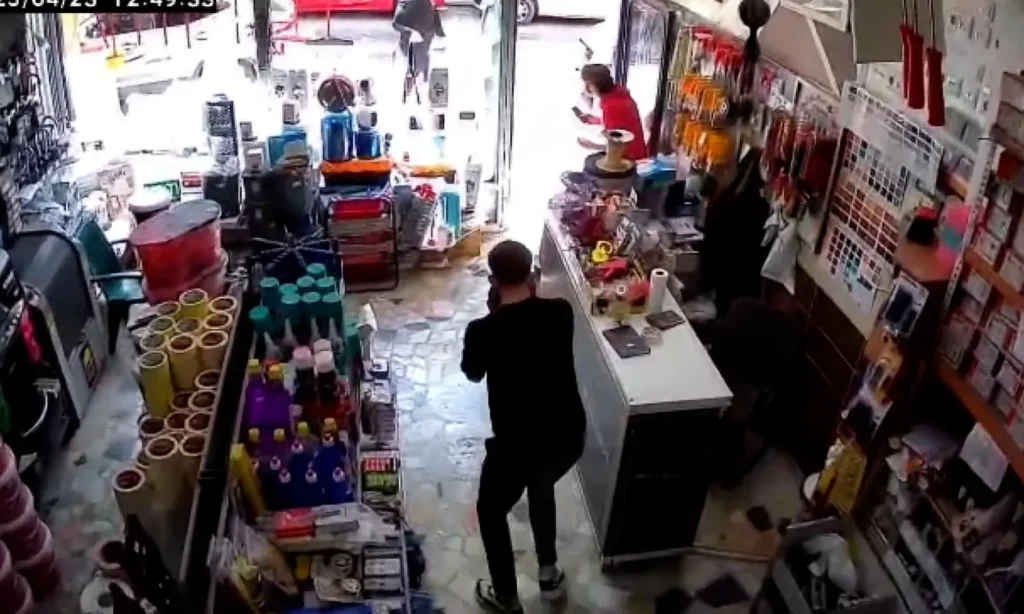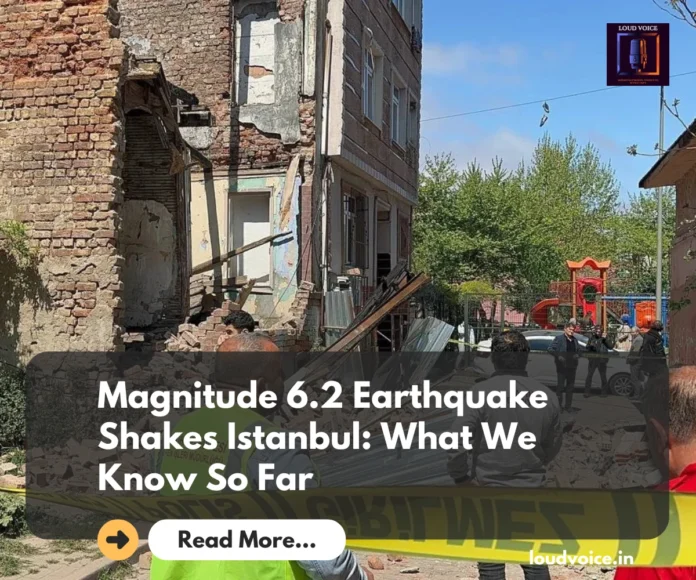Key Takeaways
- Magnitude 6.2 earthquake shook Istanbul and surrounding areas, prompting swift government response and public concern.
- No major structural damage reported, according to preliminary assessments by Turkey’s disaster response agency, AFAD.
- The earthquake’s epicenter was located in Silivri, part of the volatile Marmara fault line, near the North Anatolian Fault.
- Infrastructure including highways, airports, and metro systems remained operational after thorough inspections.
- Authorities continue to monitor the situation with on-ground teams assessing buildings and public safety.
Magnitude 6.2 Earthquake Shakes Istanbul: A Sudden Tremor in a Fragile Zone
In a region historically vulnerable to seismic activity, a magnitude 6.2 earthquake shook Istanbul and surrounding towns along the Marmara Sea on Wednesday, causing widespread anxiety but, so far, no reported casualties or major damage.
The earthquake, which struck at 12:49 pm local time (09:49 GMT), originated off the coast of Silivri, about 80 kilometers west of Istanbul. With a depth of approximately 6.9 kilometers (4.3 miles), the tremor was strong enough to be felt across the sprawling metropolis, rattling nerves and triggering immediate safety checks across public and private infrastructure.
A Region on the Fault Line
Silivri lies directly above the Marmara Fault, a segment of the highly volatile North Anatolian Fault system—one of the most earthquake-prone regions on the planet. This isn’t the region’s first brush with disaster—just two years ago, a magnitude 5.9 quake rocked the same area, inflicting significant damage on schools and hospitals.
Six minor earthquakes in the area followed Wednesday’s jolt. According to AFAD (Turkey’s Disaster and Emergency Management Authority), two earthquakes hit off the coast of Silivri, registering magnitudes of 6.2 and 3.9. Five more occurred in Buyukcekmece, Istanbul Province, ranging from 4.4 to 5.9 in magnitude.
Government Response: Quick, Coordinated, and Cautious
Within hours, top Turkish officials, including President Recep Tayyip Erdoğan, Interior Minister Ali Yerlikaya, and Infrastructure Minister Abdulkadir Uraloğlu, convened for emergency briefings. The ministries of environment, health, and urban development were also looped in to coordinate response efforts.
“We’ve conducted immediate inspections across our critical infrastructure—highways, subways, airports, and railway lines. No damages have been reported,” said Minister Uraloğlu in a televised statement. He emphasized that the infrastructure held up “without any signs of compromise.”
Interior Minister Yerlikaya added, “No calls about collapsed buildings have been received so far. Our emergency teams are inspecting vulnerable areas continuously.”
Silivri’s Calm Amid Uncertainty
Bora Balcioglu, the mayor of Silivri, also offered reassurances. “Preliminary scans reveal no significant structural damage. Our field teams are working around the clock to ensure public safety,” he stated in a press release.
The area has since witnessed heightened activity as local officials, emergency response teams, and engineers carry out thorough inspections of bridges, schools, hospitals, and residential complexes.

A Stark Reminder of Istanbul’s Seismic Risk
While this event caused minimal damage, it serves as a poignant reminder of Istanbul’s vulnerability to major earthquakes. Experts warn that the Marmara fault line is capable of producing far more powerful tremors.
In 1999, a catastrophic magnitude 7.6 earthquake in İzmit, not far from Wednesday’s epicenter, killed over 17,000 people. The memory of that tragedy remains fresh in the minds of many Istanbul residents.
“This earthquake may not have caused destruction, but it’s a wake-up call,” said Dr. Erdal Şahan, a geophysics professor at Istanbul Technical University. “We must continue preparing—earthquake-proofing buildings, educating the public, and improving early-warning systems.”
What Citizens Felt and Feared
Social media lit up minutes after the quake, with users sharing videos of shaking chandeliers, swaying buildings, and panicked crowds in metro stations. While many remained calm, the fear of a repeat of past tragedies loomed large.
“I was at my desk when the building started swaying. My heart sank. I thought it was another big one,” tweeted one Istanbul resident.
Preparedness Saves Lives: Lessons from the Tremor
Despite the lack of visible damage, emergency response units have urged caution and preparedness. Here are some key safety takeaways:
- Check your building’s earthquake resistance.
- Keep an emergency kit stocked with essentials like first aid supplies, non-perishable food, clean water, and a reliable flashlight.
- Know evacuation routes and identify safe spots in your home or office.
- Stay away from windows, elevators, and heavy furniture during a quake.
AFAD continues to update its public channels with safety information and aftershock alerts. Citizens are advised to follow only official channels to avoid misinformation.
Global Seismic Monitoring and International Reactions
The United States Geological Survey (USGS), along with several European seismic agencies, tracked the event and confirmed the magnitude and coordinates of the quake. Experts from neighboring countries have also expressed concern, offering support and technical assistance if needed.
Though Turkey is accustomed to tremors, global observers are watching this episode closely due to Istanbul’s dense population and strategic significance.
Conclusion
While Istanbul was spared devastation this time, the magnitude 6.2 earthquake serves as both a jolt to the ground and a jolt to collective consciousness. It underscores the importance of continuous vigilance, disaster preparedness, and urban resilience. In a city that straddles continents and history, the earth’s unpredictable energy remains a potent force—one that must be respected, studied, and prepared for.


